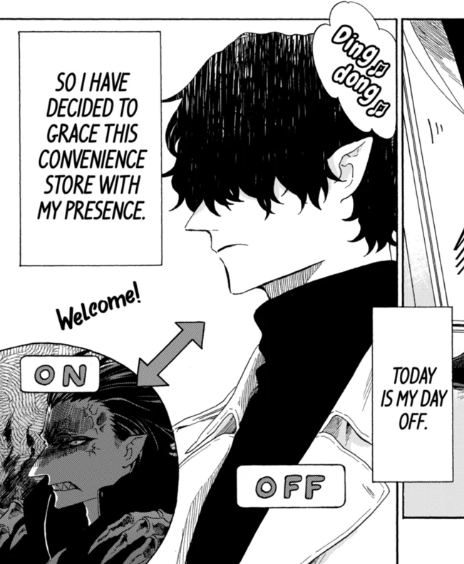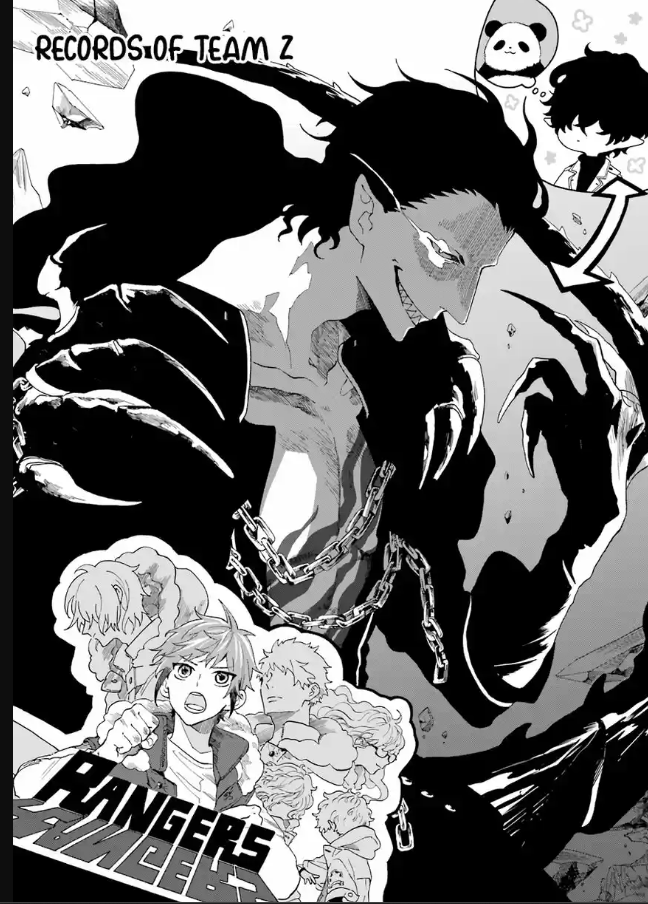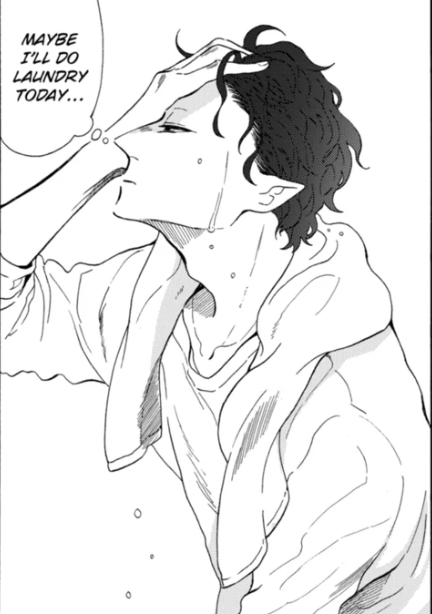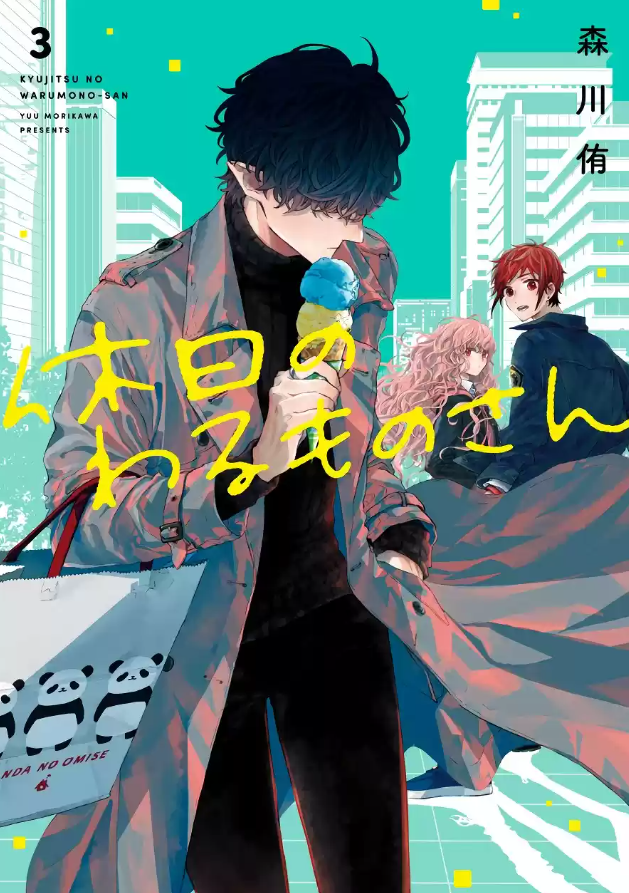If you’ve ever asked yourself “I wonder what Dr. Doom [fill-in other favorite villain] does on his day off? Does he go shopping in his full armor and cape or what? What’s he like when he relaxes?” then Kyuujitsu no Warumono-san / Mr. Villain’s Day Off is for you.
SPOILERS
.
.
.
If you’re looking for something fun and light, with a tiny bit of a heart, this manga is nearly perfect. There are a couple of weird subplots that I skim when I hit them (namely a very out of place story of a friendship between an oak tree spirit and a cherry tree spirit, but also some of the origin stories of the Good Guys–oh, and, of course, the weird Santa stuff), but, otherwise, I’m fully sold on this concept.
I tend to like really like fictional villains, however.
Over Easter weekend, I was on a panel at MiniCON that was meant to plumb the depth of this question, “Why do we like to ship dark with light?” but it got derailed by a fellow panelist insistent on shaming us for enjoying immoral and “cruel” characters. I’ve since spent a lot of time pondering the questions we were never allowed to fully consider. One of the conclusions I’ve come to is that it is inherently sexy to consider, “What is this person like when they’re at home, relaxed?” It unveils them, right? Being shown this intimate moment makes the person automatically more vulnerable, exposed, and authentic.
Thus, with villains, the stakes are higher. Vulnerable is something they are never meant to be.
The villain is also someone who is often larger-than-life. Thus, the instant we start to imagine them as “real” people who need to do their laundry or decide which ice cream to buy at a 7/11, they just become ridiculous. It’s just funny to think about. Cute. This is the same reason why Way of the House Husband doesn’t have to work that hard to be funny. The situation is already hilarious. Gangsters doing battle with the dishes (or, famously, a roomba), is just… it’s absurd and ridiculous and fun.
As soon as you take the villain off the battlefield, strip him of the costume of his office, he becomes… something else. More human, certainly, but possibly even, this guy:

I also love that he’s gracing the convenience store with his presence. That’s some prime villainy, right there.
One of the things I ended up liking about this manga is that we aren’t expected to believe that The General is anyone all that terribly different when he’s “on,” as opposed to when he is “off.” In fact, we get a very early scene in one first chapters in which we see the The General entirely from the point of view of a new recruit. The General is terrible to behold (and if you watch the anime in Japanese, the voice actor is great at sounding completely evil and threatening when just saying “hello,”) but he sees this overworked subordinate and says, “Listen, this war won’t be won overnight. Leave some of this work for tomorrow. Go home, relax.” And… this scene does a couple of things. First, as I noted, it establishes that The General is really just a guy who values time off, not only for himself, but for everyone, including his lowliest subordinate. Second, when we later see The General being kind to strangers and animals, it feels believable. Like, maybe The General is a good guy, deep down, being Evil is just his job.
But he is good at his job.
And I really appreciate that. Half way through what’s out on the scanlations so far, I found myself craving more and more of the “on” persona. This guy–

The one with the tail and the claws.
I was glad to see more of The General “at work,” because I think this story works best where there’s a bit of a balance. There are times both in the manga and the anime where, if I’m not reminded that this guy is the Big Bad, it could stray into boring.
Except that I’m also a fan of manga where the entire plot is, “and we go camping.” I think it helps that The General is not from Earth. You can see the ears, but we also see that the headquarters is on some dark shadow moon and the characters often speak of a far away, Mother Star. As an aside: This may be a direct reference to The Power Rangers, but I never watched because I am a fake fan. The Rangers clearly ARE the Power Rangers, they all go by color names and the one adult female character is, in fact, the Pink Ranger. My point is, slice-of-life stuff often works better for me when the characters are doing something uniquely Japanese-feeling, such as finding wonder in nature.
Like, there’s an entire chapter where The General just goes to the beach.
I can’t believe I got this far without noting that The General is also weirdly obsessed with pandas. This is actually a huge part of the humor.
Anyway, I love the art, particularly whenever we get a glimpse of The General’s darker persona beneath the hair.

As the anime is how I found this manga, I would recommend, weird Santa Claus stuff included




































